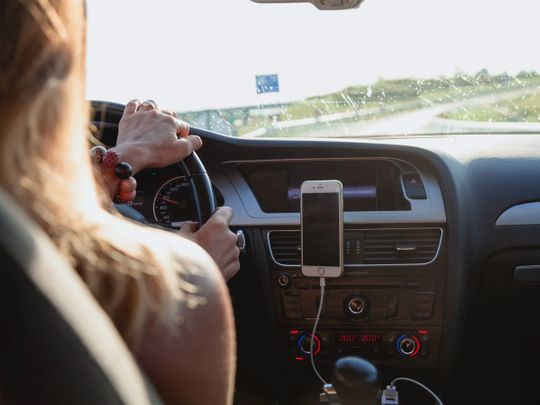
Dubai: Need to go for an urgent work meeting but don’t have your car with you? You could request a colleague to lend their car to you, but there are certain legal aspects that you need to keep in mind when it comes to driving a car that is not registered under your name in the UAE.
Did you know that Article 447 of Federal Decree Law No. 31 of 2021, which states that a person shall be sentenced to detention for a term not exceeding one year, and a fine not exceeding Dh10,000 or by either of these two penalties, if he or she uses a car, motorcycle or the like without the permission or consent of its owner or the person who holds the right to use it.
Here is all you need to know about borrowing a friend’s or colleague’s car.
1. You must always have a valid driver’s licence
Regardless of whose vehicle you are driving, it is imperative that you have a driver’s licence which is accepted in the UAE. This could be a UAE driver’s licence or in the case of tourists, an international driver’s licence. Article 51 of the UAE traffic law stipulates that a person who drives a vehicle without a driving licence, or drives a vehicle he/she is not licensed to drive shall be jailed for up to three months, or fined up to Dh5,000, or both.
In the case of UAE residence visa holders, only a UAE driving licence is accepted. If you are on a tourist visa, you can drive in the UAE on an international driving licence.
However, visitors who hold the nationality and driving licence from the following countries can drive on their home country’s licence:
• All the GCC nations
• Australia
• Austria
• Belgium
• Spain
• Germany
• France
• Ireland
• Netherlands
• Italy
• United Kingdom
• Turkey
• Greece
• Switzerland
• Norway
• Denmark
• Sweden
• Romania
• Poland
• Finland
• Portugal
• Canada
• United States
• South Korea
• Hong Kong
• Singapore
• Japan
• New Zealand
• South Africa
Also, according to Dubai’s Roads and Transport Authority (RTA), if you are on a visit to the UAE and holding a valid international driving license, accordingly you can rent a car or drive a car registered to your name or one of your first degree relatives.
2. You must have permission to drive the vehicle
As mentioned above, whether it is a friend or colleague, it is essential that you only drive a vehicle if the owner has provided his or her permission, as per Article 447 of the UAE Penal Code.
Dh 10,000
fine and/or jail term up to one year for using a vehicle without the permission or approval of its owner.What happens if I get into an accident?

If the individual driving the car meets with an accident, would the vehicle owner’s insurance policy cover the damage? Normally, yes, as long as you meet certain criteria.
“According to the unified policy on automobile insurance, as per the UAE’s Insurance Authority, if my friend is driving my car – as long as he or she has a valid driving licence issued at least over a year ago and the driver is above the age of 25 – any accident claim should be covered in my insurance policy. However, it does have an implication on me as my claim history would be affected but we have seen these cases covered,” Hitesh Motwani, Chief Marketing Officer at InsuranceMarket.ae, told Gulf News.
In cases where the driver is under the age of 25 or the driving licence was issued less than a year ago, you will have to pay an additional 10 per cent payment on the ‘excess amount’. The excess amount is the amount a person pays when they are the liable party in an accident – referred to in insurance terms as an ‘at fault claim’.

According to the unified policy on automobile insurance, as per the UAE’s Insurance Authority, if my friend is driving my car – as long as he or she has a valid driving licence issued at least over a year ago and the driver is above the age of 25 – any accident claim should be covered in my insurance policy. However, it does have an implication on me as my claim history would be affected but we have seen these cases covered.
“Another aspect to consider is in the case of high net worth cars, for example a super car. In those cases, before issuing the policy the insurance companies discuss the terms with the customer and put in special clauses within the policy. For example, it could be mentioned that nobody under the age of 30 years can drive the car or they could have a ‘named driver policy’, where only the driver named in the policy would be covered in case of an accident,” Motwani added.
So, while any accident in such a scenario may likely be covered under the vehicle owner’s insurance policy, it is important to be cognizant of the exceptions and ensure that all rules are followed when you borrow a friend’s car.
This article was originally published on November 12, 2020 and has been updated since.











